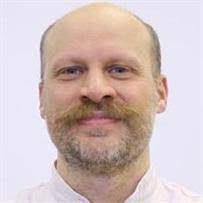Short Course
Short Course (I)
Topic:
Reactive Sputtering
Date/Time/Place:
November 12, 2023, 9:00 - 12:00
R204
Content:
Course Objectives
- Understand the fundamental processes driving (reactive) magnetron sputtering
- Develop strategies for dedicated experiments to unravel the complexity of reactive magnetron sputtering
- To get a good overview of the current literature and modelling techniques
Course Description
Reactive magnetron sputter deposition is a mature technique often used in laboratories and at industrial level to grow compound thin films. The growth of these films is defined by the deposition conditions, and therefore a good knowledge of the deposition process is essential to tune the growth and as such the film properties.
After a short introduction on the physics of sputtering, the magnetron discharge and the transport of sputtered atoms through the gas phase, the course starts with a few definitions regarding reactive sputtering to show that the processes driving this technique are general applicable. This introduction assists the attendee to the next step : the description of the most common experiment during reactive magnetron sputtering, the hysteresis experiment. The simplicity of this experiment fools initially the scientist because it hides a complex interplay between different processes that define the actual outcome of the experiment. During the course, the details of this experiment are analyzed, and modelling is used to guide the attendee. In this way, the attendee will gain knowledge in a wealth of important process controlling the film growth. A good knowledge of these processes will arm the attendee to analyze and to control the reactive sputtering process.
Course content
- Sputtering : physics of sputtering, and transport of sputtered atoms
- Magnetron discharges : typical features, electron emission, excitation and ionization
- Hysteresis experiments : what can we learn from this “simple” experiment ?
- Understanding this experiment by modelling
Lecturer:

Prof. Diederik Depla
Department of Solid State Sciences, Ghent University, Belgium
D. Depla has received his Master Degree in Chemistry in 1991 at Ghent University, Belgium. In 1996 he promoted with a PhD thesis in Solid State Chemistry on spray drying of precursors for superconductors. After a short period as senior scientist in the Department of Solid State Sciences, he became in 1999 Professor at the same department. His research focuses on the fundamental aspects of reactive magnetron sputter deposition. He has shown the importance of ion implantation on this process, and explained the discharge voltage behavior during reactive sputter deposition. In this way, his continuous research in this area resulted in several publications. He is now as full professor head of the research group “Dedicated Research on Advanced Films and Targets” (DRAFT). More details can be found on www.draft.ugent.be. D. Depla is Belgian representative of the IUVSTA, and secretary of the thin film division of this organization, and president of the Belgian Vacuum Society.
The film community, and the physical vapor deposition community in particular, is dominated by application driven research aiming to discover new materials and new methods to enhance the production capacity. Under the guidance of D. Depla, the research group has distinguished itself from this rather technological approach, and has set an own course seeking for answers on fundamental questions related to film growth and process control. Although this approach could lead to intractability, D. Depla has an open mind to answer these questions in an alternative manner which forms an important dynamic in the research group which currently consists of 3 PhD students (1 preparing his PhD thesis). The unique approach of the research group to tackle these fundamental questions, has propelled the research group to the forefront of the thin film community and we are today recognized as one of the world leading groups in reactive sputtering. A simple “google.com” search on “reactive sputter deposition” immediately shows a few links to the research group or the PI. The American Vacuum Society recently acknowledged the work of D. Depla through the “Bill Sproul Award 2022” “for his persistence to unravel the fundamental processes during reactive magnetron sputter deposition”.
Fee:
For the detailed infomration, please check the below page.
Registration & Payment
繳費與報名
=====================================================
Short Course (II)
此為中文場次,以中文進行
This session will be held in Chinese
Topic:
Material Informatics toward 5G/6G from Machine Learning
Date/Time/Place:
November 14, 2023, 14:00 - 15:40
Lecture Hall
Content:
The artificial intelligence shows a machine intelligence, refers to the intelligence displayed by machines made by humans. Machine learning is a branch of artificial intelligence. In the past 30 years, machine learning has developed into a multi-field interdisciplinary integration, involving multiple disciplines such as probability theory, statistics, approximation theory, convex analysis, and computational complexity theory. The complex physical and chemical properties of advanced materials can be adjusted accordingly for different application needs, and can change during synthesis, production and use. The machine learning of material informatics is to halve the research and development cycle of new materials and reduce the cost to a fraction of the current price, such as the research and development of 5G/6G materials.
Lecturers:
Prof. Kao-Shuo Chang
Department of Materials Science and Engineering, National Cheng Kung University
Prof. Yen-Hsun Su
Department of Materials Science and Engineering, National Cheng Kung University
Fee:
免費參加
Registration & Payment
繳費與報名